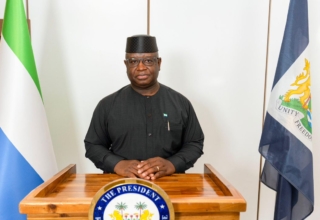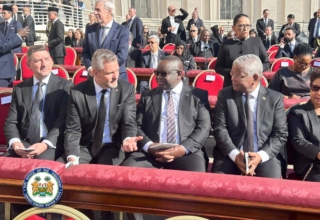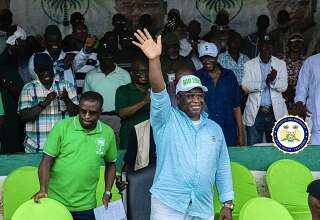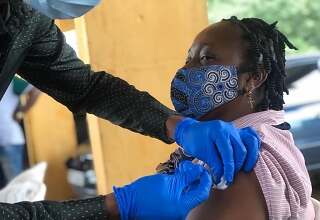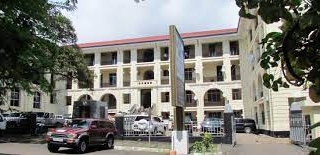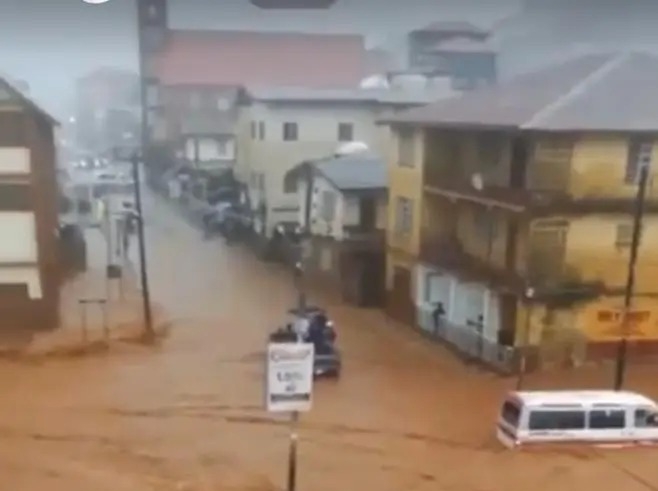
𝐁𝐲 𝐇𝐚𝐣𝐚 𝐀𝐝𝐚𝐦𝐚 𝐊𝐚𝐦𝐚𝐫𝐚.
The Deputy Director General of Sierra Leone Meteorological Agency (SLMet), Gabriel Kpaka has said in Freetown that Sierra Leone is going to experience deficit rainfall for the months of June, July and August compared to thirty years back.
Mr Kpaka made this disclosure on Friday, May 3, while updating journalists on their seasonal forecast for raining season at their Charlotte Street Office in Freetown.
He said SLMet is charged with the responsibility to advise government on all aspects of the meteorology, climatology, climate change and climate related issues, with the fundamental goal of saving lives and properties.
He said the forecast will help give a detailed analysis of what is expected in the 2024 rainy season and it will help build the human and technical capacity of journalists in interpreting the seasonal and daily weather forecast for decision making and onwards dissemination to the general public.
He said the seasonal outlook is to prepare the minds of Sierra Leoneans and institutions for them to prepare ahead to minimise some of that disaster or risk to occur.
He said that they have various weather stations across the country which they are using to monitor the weather, including one for agriculture, marine, aviation, and manual stations.
Mr Kpaka added that the tools they use for generating seasonal outlook is the climate predictable tool which all meteorological services across the world are using for weather prediction.
He said for this year’s seasonal outlook, they are using the sea surface temperature configuration, SMS forecasting tools, forecast and knowledge because it controls the model.
The minimum hours they can use to do weather forecast is around 6:00 am to 12:00 pm, but for seasonal outlooks, they use the month to develop what they push to the public.
From 1995 to 2023, Freetown, Makeni, and Lungi have been recording some significant rainfall which shows that indeed climate change is happening.
He said for the days ahead Sierra Leoneans are going to expect rainfall and the sea surface temperature is going to be warm around the Atlantic.
Expected cumulative rainfall, Kabala is expecting to get 1,040-1,080mm rainfall for JJA, Freetown 1,480-1,580mm rainfall for JJA among others, adding that July, August, and September are the months the country will experience disaster because during June, July, August the country recorded some rainfall.
Mr Kpaka continued that they are also preparing for farmers for them to know when they should start planting their products and harvest.
He stated that for most areas in Bo, Makeni, and Kailahun are going to have early planting season or early rainfall of 20mm, but the rest of Kabala, Kono, Bonthe, and others are going to have late planting.
He added that the country is going to have late-end rains, except Freetown which is going to have normal end of the season, stating that this year they are going to launch the first planting calendar for farmers to know when to plant their different crops.
He said they are expecting some heavy wind in May, but less wind in June. He said people must expect strong winds in July, August, and September, early thunderstorms and lighting, flooding, heavy pollution, high risk of pest and insect outbreaks.
He called for effective monitoring and response capacity for flood and disaster risk reduction, noting that citizens should avoid uncontrolled occupation of flood-prone areas and the government should support farmers’ access to improved varieties among others.
“I want to use this opportunity to advise the public not to drink the first one week of rainwater because it going to be acidic dirty and contaminated, but we have to wait for several or days rain before drinking it. Climate change is here and it affects everyone in the country; therefore, the public needs to know about the weather,” he said.

